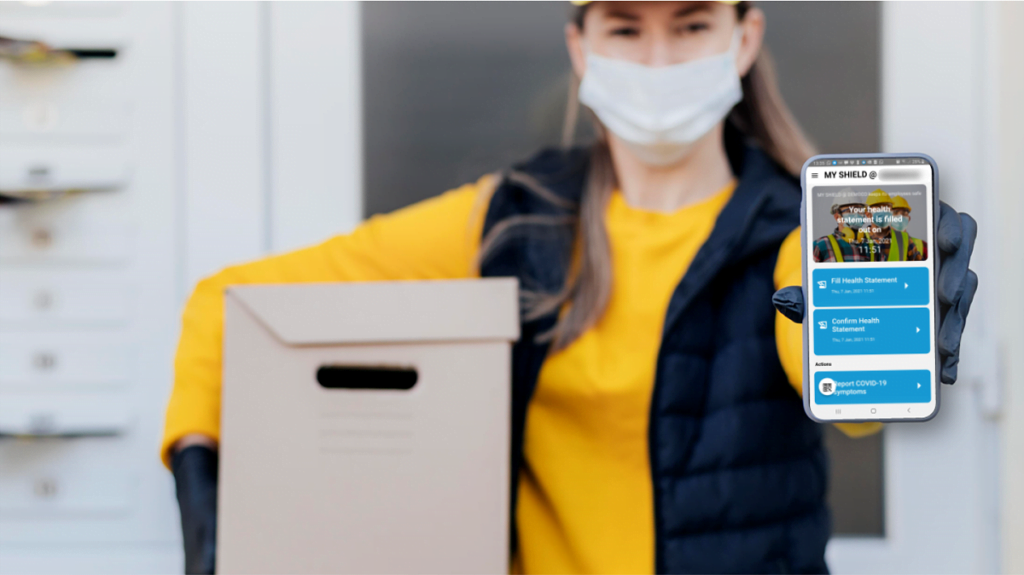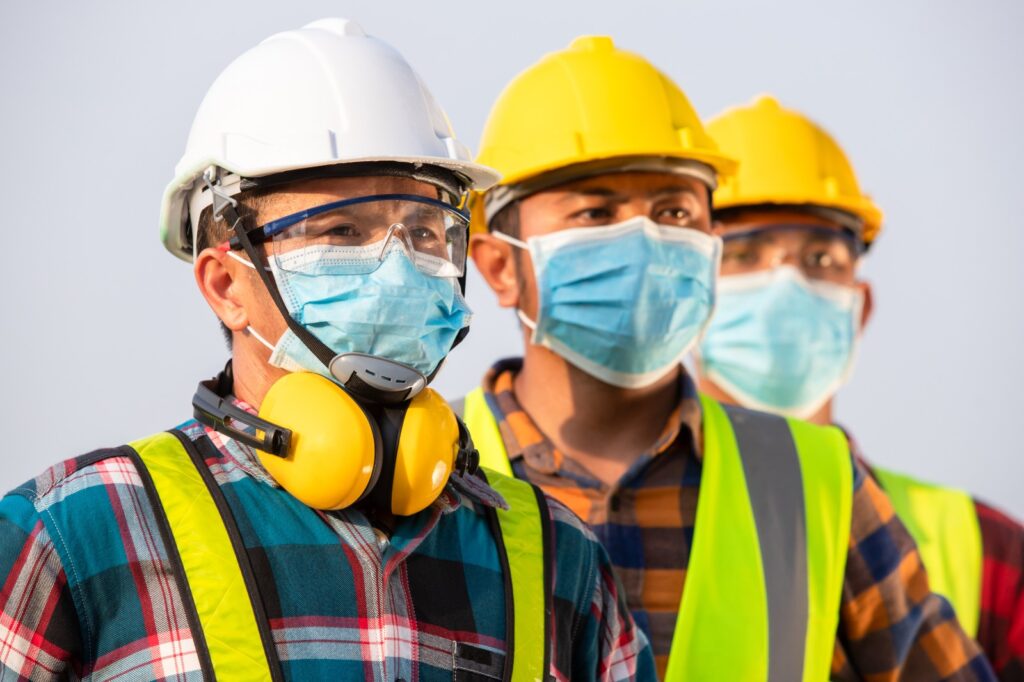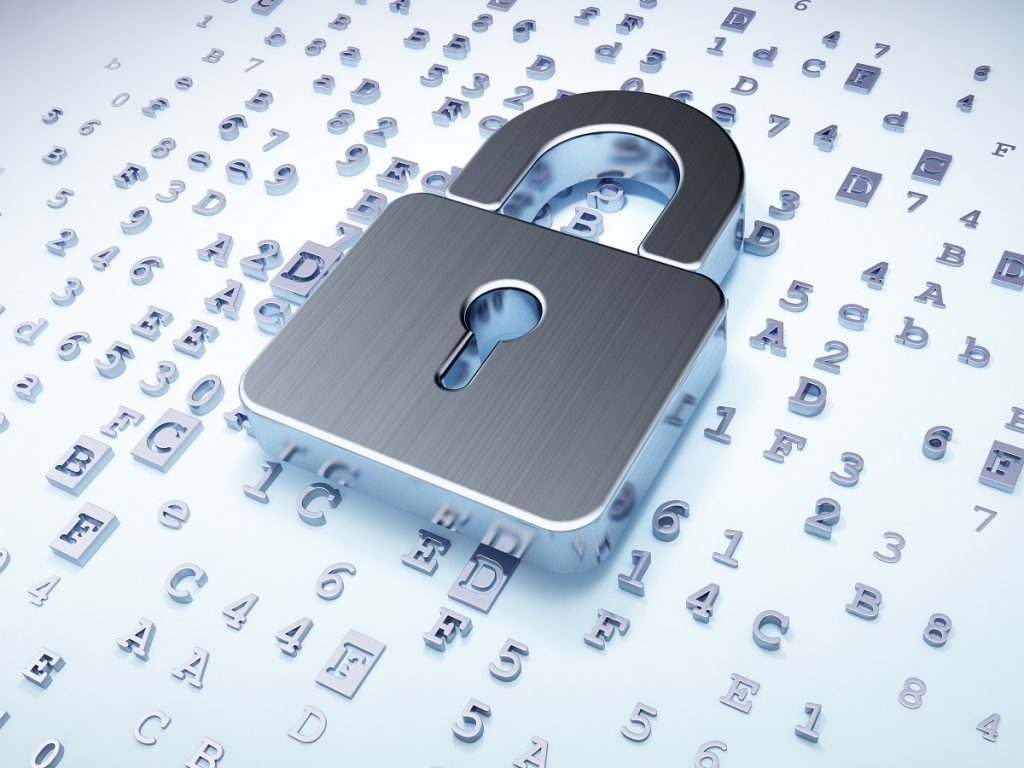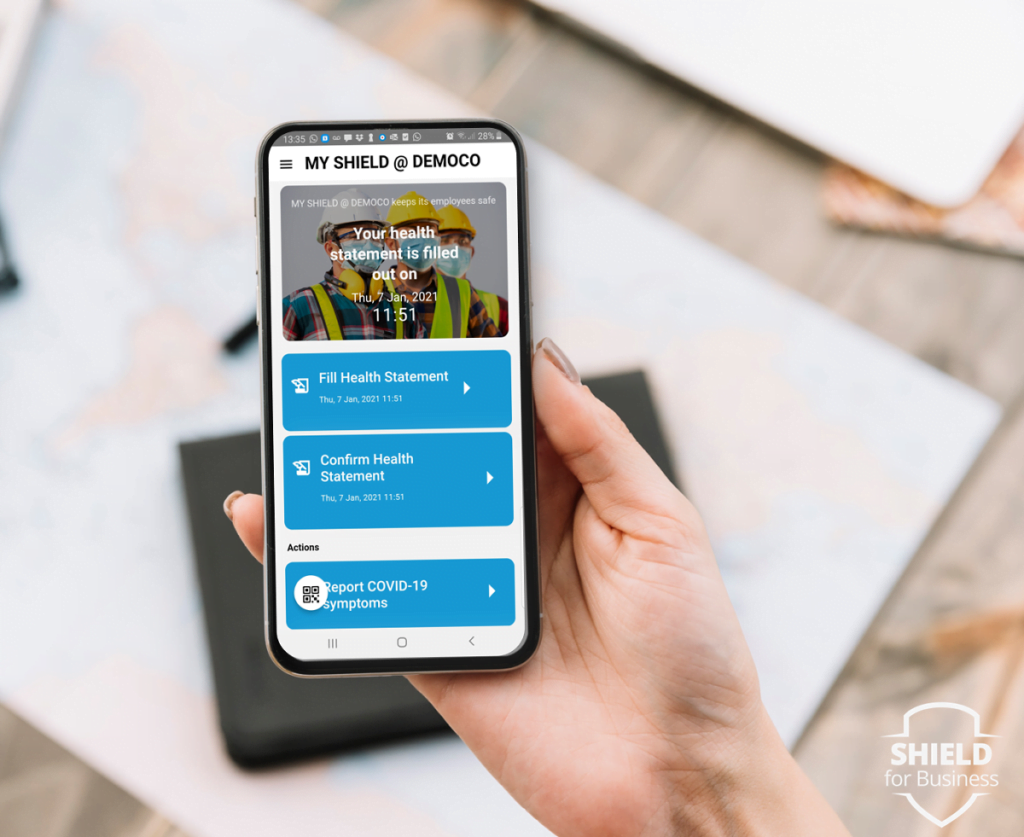Israel garnered worldwide attention in the early days of the COVID-19 outbreak when it became one of the first countries to launch a national smartphone app that aimed to curb the spread of the virus by enabling users to know if they’ve been exposed to a confirmed patient.
HaMagen (The Shield,) the government-run contact tracing app was developed to prevent the spread of the deadly virus by cross-checking the user’s movements with Health Ministry data of positive patients to determine if a user came in contact with someone who had COVID-19.
But the opt-in app was widely criticized from the start, for poor functionality, false positives, and invasive data technologies. Experts at the Israel Democracy Institute (IDI) called the implementation of the app a “colossal failure” in November in a scathing report that claimed 98 percent of Israelis who downloaded the second version eventually removed it from their mobile devices. They called on the government to move away from its current top-down approach in favor of a local regulatory bottom-up one that encourages and supervises local initiatives.
(The app was separate from Israel’s contentious surveillance program headed by the Israel Security Agency (ISA), the country’s internal security service also known as the Shin Bet, to use digital tools to track coronavirus cases and keep tabs on quarantined patients – this too was criticized.)
Niv Schwartz, CEO and founder of Israeli firm Onspota, a company that converts Foot Traffic Analytics into actionable insights, said his team was inspired by the IDI report to pivot their micro-location technology and machine learning algorithms to create a new solution to help the current crisis.
He tells NoCamels that “communities need to step forward and take the lead on stopping the spread of the coronavirus.”
“We have a solution for those communities,” he adds.

The company’s Shield For Business provides organizations and businesses with a corporate contact tracing solution that notifies employees when they have come in contact with a COVID patient in the workplace, based on Onspota’s composite positioning system (CPS) technology.
Schwartz says the app is suitable for places where employees are working in close proximity to one another, such as factories, hospitals, warehouses, and hotels. While Schwartz tells NoCamels he was the one that made the initial seed investment into the new solution, the company has customers and the tech been deployed at several factories in Israel, as well as in about two-dozen locations in Asia, including a large Caterpillar Inc. dealership in Myanmar.

In Israel, the app is also part of the country’s national “Shield for Industry” program launched by the Manufacturers Association of Israel (MAI) to offer business owners a set of tools and services to help maintain business continuity during COVID.
Cutting-edge location tech
Schwartz says the company’s CPS technology gives it an edge over other solutions out there. The technology was initially developed prior to the coronavirus pandemic for Onspota and used to deliver marketing solutions for malls, retailers, and shopping centers, based on indoor localization, the data collected from foot traffic in indoor spaces.
SEE ALSO: You Have Reached Your Destination: Israeli App Navin Aims To Be The Waze Of Indoor Navigation
“This unique composite positioning system is originally used for micro-location based services, foot traffic analytic and Proximity Marketing,” Schwartz explains, “The core technologies used for proximity analytics and contact tracing are similar and therefore we had quite a large technological advantage.”
The solution is already designed to deliver accurate positioning both in indoor and outdoor environments, through sensors. The system knows how to recognize and use all the sensors in phones, like Bluetooth, BLE (Bluetooth Low Energy), WiFi, GPS, and others.
Schwartz says the app provides more accurate contact tracing while drastically reducing the amount of power consumed by the phone. “The government’s solution simply drained the phone and ours won’t. We have a specific technology dealing with that,” he explains. It’s also important to note the speed of the app, he says. The system can produce a complete contact tracing log within 10 to 30 minutes from the time a positive case is voluntarily reported by a user.
“The faster you know, the better you can protect the company, the people, and everyone involved,” he adds.
“If we refer to the government’s general solution, they cannot say where the exposure between two people has been, which for a business is very important. This person to location solution does not exist, while in our technology, it’s built-in. We provide not only person-to-person exposure but also person-to-location exposure,” Schwartz explains, “We give businesses more power to control their environment.”
Sign up for our free weekly newsletter
Subscribe“It’s not only that they have full control over what’s happening internally. They actually run it,” he adds. This can also be done for preventative purposes in advance. For example, if an employee comes in and says his child is infected, the supervisor can find out who has been in contact with that employee and ask them not to come back into the office without a negative coronavirus test.
The great privacy debate
The emergence of advanced contact tracing tech during the COVID-19 crisis has sparked privacy concerns because of personal data collection even as companies that create these apps affirm that no location data or personal information is ever tracked, stored, or transferred to others.
Despite a company’s best efforts to comply with privacy regulations, Jonathan Klinger, legal counsel for the Israeli Digital Rights Movement, admits he is still apprehensive about a contact tracing app in the workplace.
“I think that the Israeli contact tracing app [HaMagen] fails to use standardized, non-invasive tracking techniques, meaning just Bluetooth contact tracking and not GPS and WiFi-based tracking,” he tells NoCamels, “It not only drains battery, it also cannot obtain truly accurate data.”
For its part, the team behind the Shield For Business app maintains that the app does not share any personal or geographical information with anyone, aside from a list of contacts that have been traced to a particular user identified as COVID-19 positive. The app is also delivered with compliance approved by the General Data Protection Regulation (GDPR), the regulation in EU law on data protection and privacy in the European Union and the European Economic Area.

The app is designated as a private label solution, Schwartz says. This means that it works internally with specific enterprises. “It goes to the extent that each organization can actually define its own privacy methodologies. It can define where the system geographically works, and where it will not work, and also at which time,” he explains. “If the government’s solution works everywhere between everyone, our solution can work for a specific community only within the premises of that organization and within a time frame defined by that company.”
Managers can also define what employee data is collected for the purpose of identifying that worker. Schwartz notes that some companies ask that employees be identified by name and phone while other companies want their employees identified by a number.
Employees are notified on the app if they have come in contact with someone who has tested positive for coronavirus, but only by their location and time, not by their name. Employees are also notified within the organization only and not outside of it.
SEE ALSO: Amid Facebook Data Scandal, Israeli Cyberprivacy Leaders Say Preventative Tech Is Key To Privacy
“If I had a beer with a co-worker outside of the organization and the co-worker turned out to be positive, the system will not indicate this because its outside the scope of the organization,” Schwartz says.
Klinger says this may still not be enough. The problem with such apps is that it still takes away the free and open consent of employees, and it still collects data and needs us to trust them.
“First, we need to analyze their privacy policy and related documents to understand how data is collected here,” he tells NoCamels, “According to those documents, they claim that they do not collect data without the end-user’s consent and that the data is not shared. There is one problem, though, which is that consent in the workplace is somewhat limited.”
Klinger believes that an employee might feel encouraged to install the app to track his or her location, because without such an application he or she poses a greater risk of infection to his work colleagues.
“Therefore, his consent is not always free,” he says.
The team behind Shield For Business understands this. “For those employees who do not consent to using the app, we offered an alternative solution, by scanning various QR codes all across the factory floor instead.” says Schwartz.
Related posts

Editors’ & Readers’ Choice: 10 Favorite NoCamels Articles

Forward Facing: What Does The Future Hold For Israeli High-Tech?

Impact Innovation: Israeli Startups That Could Shape Our Future




Facebook comments